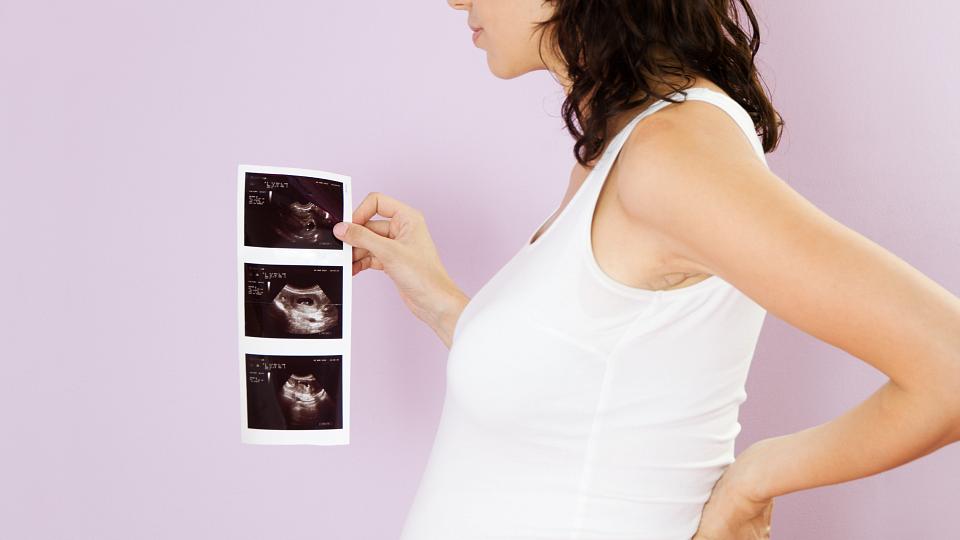
Perinatal Mood Disorders & Anxiety
What Is a Perinatal Mood Disorder?
Many women experience the “baby blues” after giving birth. However, if your symptoms persist or get worse, you're not alone. An estimated 15 to 20 percent of new mothers suffer from postpartum (after childbirth) depression and anxiety—the most well-known perinatal mood and anxiety disorders (PMADs), which occur immediately before or after giving birth.
Other types of PMADs include the following:
Hear From Lauren Gimbel, MD
Perinatal Mood Disorder Symptoms
These symptoms may develop at any point during your pregnancy or may appear within a year after giving birth. If these symptoms are left untreated, they may cause lasting negative health effects for both mom and baby, as well as spouses and other family members:
- Severe mood swings
- Scary thoughts about your baby
- Fatigue
- Sleep disturbances
- Anger
- Feelings of intense shame or guilt
- Loss of appetite
Perinatal Mood Disorder Treatment
Early screening and intervention for postpartum depression and other PMADs will lead to better outcomes for both you and your baby. If you seek counseling to address any concerns you may have about your pregnancy, parenting, or postpartum wellness, you could greatly reduce your risk of a mental health crisis during the postpartum period as you transition to parenthood.
Find a Perinatal Mental Health Specialist
Jamie L. Hales, LCSW
Jessica Z. Howsley, MD
For the Love of Mothers
Learn how U of U Health researchers, a team of community partners, and Utah mothers across the state are working together to build new programs that address postpartum mental health disorders.
Birth Trauma & Postpartum PTSD
Postpartum post-traumatic stress disorder (PTSD) is experienced by approximately nine percent of women after childbirth, many of which keep quiet about it. This disorder could have lasting negative effects on mothers if left untreated. It is important for women to recognize that this is a result of real or perceived trauma.
There are many causes of postpartum PTSD:
- Unplanned C-section
- Use of forceps or vacuum to deliver the baby
- Your baby going to the NICU (neonatal intensive care unit)
- Stillbirth or pregnancy loss
- Severe physical complications or injuries related to the pregnancy or childbirth
- Severe postpartum hemorrhage (blood loss from a broken blood vessel)
- Perineal trauma (area between the genitals and anus)
- Unexpected hysterectomy (surgery to remove all or part of the uterus)
- Severe postpartum hemorrhage (blood loss from a broken blood vessel)
Women who have a history of sexual abuse or assault are at a higher risk of experiencing postpartum PTSD due to pregnancy-related or obstetric appointments, delivery, and medical intervention.
Postpartum PTSD Symptoms
If you are experiencing any of the following postpartum PTSD symptoms, our team is here to help provide resources, education, and healing:
- Increased anxiety or panic attacks
- Worsening depression or irritability
- Avoidance of the stimuli associated with the events (people, places, feelings, details of the event, etc.)
- Difficulty sleeping
- Increased alertness or easily startled
Pregnancy Loss: Miscarriages & Stillbirths
Grieving a pregnancy loss is real no matter when your pregnancy loss occurs. There are a variety of pregnancy loss types:
- Miscarriage (spontaneous loss of a fetus before the 20th week of pregnancy)
- Stillbirth or fetal demise (pregnancy loss after the 20th week)
- Abortion (a procedure performed to end a pregnancy)
The most common mental health concerns with pregnancy and infant loss are depression, anxiety, and relationship conflict. After a pregnancy loss, a woman’s body is still going through significant hormonal changes. These may act as constant reminders of the loss she just experienced, which may make her susceptible to perinatal mood and anxiety disorders (PMADS). Pregnancy loss is also considered a traumatic event which affects both men and women differently. This could cause strain on the relationship.
When to Seek Treatment
You should schedule an appointment with one of our providers if you experience any of the following symptoms:
- Feeling down
- Excessive guilt
- Sleep disturbances
- Anger
- Intense feelings of shame
- Loss of appetite
- Numbness
- Disbelief
You and your mental health provider will collaborate to create a treatment plan that is tailored for your own healing. Everyone grieves differently and it is important that you reach out for the support you need during this time.






